- Home
- Dornford Yates
Safe Custody and Laughing Bacchante
Safe Custody and Laughing Bacchante Read online
Table of Contents
Introduction
SAFE CUSTODY
1. We Encounter Two Deadly Sins
2. With Felonious Intent
3. To See A Fine Lady
4. The Ravell’d Sleeve
5. An Odour Of Sanctity
6. My Lady Opens Her Mouth
7. Rose Noble Moves
8. A Matter Of Form
9. False Colours
10. Breathing Space
11. My Lady’s Chamber
12. And Satan Came Also
13. Judgment of Death
14. I Find My Fortune
LAUGHING BACCHANTE
Prologue
1. We Shut The Stable Door
2. From Pillar To Post
3. Rogues And Vagabonds
4. The Play’s The Thing
5. The Vat Of Melody
6. The Hard Way
7. Two’s Company
8. Present Laughter
9. We Consider A Dimple
Introduction
About this Epub
This epub contains two of Yate’s adventure novels: Safe Custody (1932) and The Laughing Bacchante (1949). In Safe Custody after inheriting the Castle of Hohenems in Carinthia, Austria, on the death of his uncle Nicholas Ferrers, John Ferrers and his cousin Hubert Constable attempt to gain possession of a priceless collection of 127 large sculptured jewels originally belonging to Pope Alexander the Sixth. His uncle knew these jewels were concealed in the castle but had never been able to find them. The Ferrers are enmeshed in a plot by a gang of criminals headed by the brother of their uncle's secretary. In The Laughing Bacchante, Chandos and Jonathan Mansel help their friend Ferrers move the gems from Hohenem Castle to England in order to avoid confiscation of the castle and its contents by the Nazis upon their imminent takeover of Austria in 1938. To their dismay, both a master British criminal and a Nazi agent try to gain possession of the jewels.
Of the two books in this epub, Safe Custody does not conform to the Chandos series (see below) in that neither Chandos or Mansel are present but it is linked to the series in that in its sequel The Laughing Bacchante (U. S. A.) = Cost Price (Gr. Britain) both Richard Chandos and Mansel are the lead characters. These two books were written many years after Yate’s similar books Blind Corners (2927) and Perishable Goods (1928), and shows an evolution in the author’s perceptions about how his adventure stories should be constructed although there are many similarities to the earlier two books.
About Dornford Yates
Dornford Yates was the pseudonym of the British novelist, Cecil William Mercer (7 August 1885 – 5 March 1960), whose novels and short stories, some humorous and some thrillers, were best-sellers in the period between the Dornford Yates First and Second world wars. The pen name, Dornford Yates, first in print in 1910, resulted from combining the surnames of his grandmothers — the paternal Eliza Mary Dornford, and the maternal Harriet Yates.
Yates wrote two different types of novels, the first, and earliest, ones are semi-autobiographical, light-hearted romances describing the activities of young, well-to-do, people in England during the 1920’s and 1930’s; the second type is set in the same time-frame but is quite different. Most of these books involve suspenseful and often violent adventures of a group of friends. Many of these books are referred to as the Chandos series. The Chandos books were set mainly in Continental Europe (often in Carinthia, Austria), wherein the narrator, Richard Chandos, and his colleagues, including George Hanbury and Jonathan Mansel (their leader), tackle criminals, protect the innocent, romance beautiful ladies, and hunt for treasure. It is the Chandos novels to which Alan Bennett especially refers in naming Dornford Yates in the play Forty Years On (1972): “Sapper, Buchan, Dornford Yates, practitioners in that school of Snobbery with Violence that runs like a thread of good-class tweed through twentieth-century literature." Yates also wrote other thrillers in the same style, but with different characters. (Modified from Wikipedia, 2012)
Safe Custody
Dornford Yates
1932
Chapter 1. We Encounter Two Deadly Sins
When my great-uncle, Nicolas Ferrers, died in the arms of a pedlar by the side of the Great North Road, he left a world that knew but little about him and cared still less.
My cousin, Hubert Constable, and I were his only relatives, but, though we were able to swear to the dead man’s face, we had not seen him alive for more than six years.
We knew that he dwelled abroad and we knew his address—Hohenems Castle, Carinthia, Austria: we knew he had never married and that his word was law: we had been taught to believe that he could be pleased or displeased by what we did: but, though our parents were dead, he made so little of our kinship that had we been in trouble, it would not have entered our heads to let him know. Indeed, though he had been our guardian, he had become for us a kind of lesser deity, unseen, mysterious, venerable, that never uttered a precept but by his secretary’s hand.
Then, out of the blue of a pleasant April morning, we each received a letter bidding us meet him in Scotland in three days’ time. We were actually discussing this summons upon the telephone, when a telegram came to tell me that he had been fatally hurt and was lying at a little village on the edge of a Yorkshire dale.
The message was sent to me because, I suppose, I bear my great-uncle’s name, but had whoever sent it known us by sight, he would have addressed it to Hubert, not so much because he was the elder as because he is plainly the leader of whatever company he keeps.
Feeling something dazed, I told my cousin the news, and within the hour we had left by train for the village the police had named.
And there we were shown the dead man and were told the truth.
This was ordinary enough.
A tire had burst, and the car in which he was travelling had been overturned. The driver had been killed outright: our great-uncle had died on the spot: and his secretary, grievously hurt, had been carried to hospital.
At once we drove to the town at which the survivor lay, but though I think the man knew us, he gave no sign. His brother had been sent for, and once or twice he inquired if he had not come, but though, as I afterwards learned, he fought for his life, he died the next morning before his brother arrived.
That day, to our relief, our great-uncle’s lawyer appeared, and we were more than thankful to let him take over the duties which we had begun to discharge. I then returned to London, to fetch us changes of linen and suitable clothes, while Hubert stayed in Yorkshire to give what assistance he could.
The inquest was held the next day, and the day after that Nicholas Ferrers was laid in a fair church-yard, but half an hour’s walk from the spot where he lost his life. The driver, who was not in his service, was taken, I think, to the parish from which he hailed: but the secretary, Harris, was buried by the side of his master and at our charge. After the inquest his brother had disappeared, so that we alone were the mourners that stood by his grave.
My great-uncle’s Will was short.
By this he divided his fortune between my cousin and me, directing that we should pay Harris six hundred pounds a year for so long as he lived. Hohenems was left to us jointly, with all that it held.
And that is the end of my prologue. Though its burden was startling enough to Hubert and me, to the lawyer it was very plainly of slight account: and that, perhaps, was natural, for plenty meet their death on the open road, and when a man dies another inherits his goods. Yet I will wager that had he foreseen the havoc which that burst tire would unloose, for which the stage was now set, that man of law and order would have gone sleepless of nights, while had he dreamed of the violence which we were to do, t
he hair would have risen upon his respectable head.
Hubert and I returned to London alone, and when the train had started, my cousin took out a paper and put it into my hand.
“This,” he said, “was with Uncle Nicolas’ Will. Under seal, of course. I’ve shown it to nobody else.”
Dear Hubert,
You and your cousin John are now the owners of Hohenems. Directly or indirectly the neighbouring House of Haydn will press you to sell this estate, and, if you decline to sell it, to let it on lease. Do neither. They desire it not for itself, but for something the property holds. What this may be is their secret. Their anxiety argues that it is of great value, but, though I would have met them, their avarice will not allow them to come to terms. You may put your trust in Harris, who will tell you as much as I know.
Your affectionate uncle,
Nicolas Ferrers
I looked from the letter to Hubert, as a man in a dream.
“Read it again,” he said. “There’s plenty of room for guesswork and I want to hear what you think”
Again I read the letter, though the sentences danced before me, as well they might.
Suddenly I noticed the date.
“This is five years old,” I cried. “Perhaps since then . . . I looked up swiftly. “Was this why he wanted to see us?”
“Good,” said Hubert. “That’s just what I asked myself. And now you’ve confirmed the fancy, I think we’re right. I don’t say he’d found the secret, but I think he was getting warm, and, if there was work to be done, he may have wanted our help.”
I returned to the letter, and Hubert lighted a pipe. At length—
“Well, it’s up to us,” said I, “to start all over again. If only Harris had lived. . . .”
“It’s just as well he didn’t,” said Hubert.
His words surprised me so much that a match I had struck burned its way to my fingers before I had found my tongue.
As I flung it down with a cry—
“Just as well,” repeated Hubert, ” so far as we are concerned.”
“What on earth do you mean?”
“I never liked Harris,” said Hubert. “And I don’t think Harris liked us. Why Uncle Nick employed him, I never knew. A case of Homer nodding, I rather think. I saw more of him than you, and he wasn’t a man I’d trust.”
“You mean? "
Hubert laid down his pipe.
“Harris knew the secret all right—or, at least, as much of the secret as Uncle Nick knew. And he knew, of course, that his master proposed to disclose it to us. Very well, then. Why didn’t Harris tell us before he died? Because he didn’t mean us to know. Either he hoped to survive us and use the knowledge himself, or else he meant his brother to use it—that brother who came too late.
“Now I wouldn’t charge a dead man, if I wasn’t sure of my facts, but as soon as I’d opened this letter—you were in Town—I went to the hospital and saw the doctors and nurses in charge of the case.
“Harris lived seventeen hours, but he never lost consciousness once. The first thing he asked was whether Uncle Nick was alive or dead. They told him that he was alive, but badly hurt. A lie, of course, but they wanted to temper the wind. Well, Harris didn’t believe it. He was almost sure he was dead and he kept on hammering at them to tell him the truth. Then he demanded to see him, and when they said he couldn’t, he made such a scene that at last they threw in their hand and said he was dead.
“ ‘Killed on the spot?’ says Harris,
“ ‘They told him yes.
“ ‘Good,’ says Harris. ‘Am I going to live or die?’
“I suppose he saw the answer clear in their eyes, for before they could lie again—
“ ‘Then wire for my brother,’ he said, and gave them the fellow’s address.
“Then he asked how long they gave him and started to fight for his life.
“I asked them if when we came, he was in a condition to talk.
“The nurses looked ill at ease.
“Then—
“ ‘I’m afraid he was pretending,’ said one. ‘After you’d gone he said he was nothing to you and you were nothing to him.’
“Well, there you are. He knew Uncle Nick couldn’t talk, because he was dead. And he wasn’t going to talk, because he meant to rob us of what was ours.
“But with it all, the fellow did himself down.
“Such was his will to live that his state deceived the doctors, and when he asked how long he’d got, they gave him thirty-six hours. The consequence was that he reckoned on living till noon at the very least, and he knew that his brother could get there by nine o’clock. So he never wrote anything down.
“Now mark how he died.
“At three in the morning he felt himself beginning to go. At once he asked for pencil and paper, raving and cursing like a madman because he had been ‘deceived.’ When the paper was brought he hadn’t the strength to write, and there seems no doubt that his frenzy hastened his end. More to soothe him than anything else, one of the women offered to write any message he wished his brother to have. He jumped at this and started in to dictate.
“ ‘Go to Hohenems,’ he said. ‘There—’
“And that was as far as he got. I believe his struggles were frightful, for though the brain was there, he couldn’t get out the words. I don’t feel very charitable towards him, but if in fact he’s done us, he’s paid a part of his debt.”
As soon as I could find my tongue—
“And what of his brother?” said I. “Did they tell him the truth?”
“Some of it,” said Hubert. “They gave him the paper, of course. It seems his manner was curious. He showed no sign of surprise, but he asked more than once if they’d no idea of the words which his brother had tried to say. He said they concerned some papers which had a particular bearing upon the family name.”
“He was in it,” said I thickly.
“Without a doubt,” said Hubert. “Harris had told him something, but not enough.”
I set my head in my hands and tried to think, and if my thoughts were bitter, I think I may be excused.
Dead Nicolas Ferrers had been most grossly betrayed and we, his heirs, had been deliberately spoiled. This by a man to whom we had always been civil, in whom our great-uncle reposed an absolute trust.
I found myself wondering what manner of man this had been that could on his deathbed, so far from repenting his sins, conceive and coolly commit so shabby a crime.
Go to Hohenems.
The words lit up my darkness as the sudden beam of a lighthouse a sullen sea. We would indeed go to Hohenems—and wring from the place its secret, if it took us the rest of our lives. Its value was nothing: by our great-uncle’s Will we had now enough and to spare: but Harris had robbed us, and now his helpless ghost should sweat and writhe to watch us inch by inch recover our rights.
I sat up and looked at Hubert.
“And Harris the Second?” said I. “What will he do?”
“I rather imagine,” said Hubert, “he’ll do as he’s told.”
Go to Hohenems . . .
I started up from my seat.
“Damn it,” I cried, “the man may be halfway there.”
“I doubt it,” said Hubert. “He’d have to make some plans. But if he is going, I guess he won’t waste any time. D’you think we can get off to-morrow—to-morrow night?”
“I shan’t sleep if we don’t,” said I.
“No more shall I,” said Hubert. “And now let’s make a list of what we must get and do.”
That our list was comprehensive was due to Hubert alone, for I was too much excited to be of use. Indeed, whatever he said I wrote down like any clerk, and if he had stated that we must take with us a tank, I should have entered the item without a thought.
Not that our equipment was heavy: indeed, it included few things which someone about to travel would not have bought: but among these were three good torches and a pistol apiece.
Though I had a car
, we decided to go out by train, for so we should travel faster and arrive less tired, run in any country where people could read and write. With that, he telegraphed to Hohenems, stating the facts and saying that we should arrive in two days’ time, and he then made an affidavit, to which was attached The Times’ report of the inquest and a copy of my great-uncle’s Will. This we were to take with us, and, since he would do no more, we had it translated into German, as also the Will. With these papers and our passports for warrant we had, then, to be content, but I think we both had more faith in Nicolas Ferrers’ ring, which was now upon my finger and bore the family crest. While this did not prove that I was the heir-at-law—for, for all the servants knew, I might have killed their master and seized his ring—at least on the back of my wrist-watch there was the same device.
We did not leave London that evening, as we had hoped, for we found that we should do better to take the morning train, and I must confess that, for all my impatience to be gone, had we left Town that day we must have left undone a third of the things which we had arranged to do. As it was, I drove to the station without a care, to find my cousin before me and Stiven, his man, with my labels already addressed.
Hubert Constable was twenty-six years of age, while I was but twenty-two. He was tall and fair, as his mother had been before him, and people turned to regard him as he went by. His manner was always pleasant, but very quiet, while the steady look in his eyes argued a resolution which, once he had summoned it, nothing would ever shake. Though those that knew him slightly found him more grave than gay, he had a high sense of humour, and his temper was remarkably even, although, when he had just cause, I have known him put out. He shared with me a love of the countryside, and if I knew more about cars, he was a very fine rider and had a way with a horse.
Stiven was at home in the country, for he was a farmer’s son. He was young and strong and pleasant, did cheerfully all that was asked him and much beside. As I think was natural, he thought the world of Hubert, but, because he was a good servant, he served me just as swiftly and just as well. His honesty sat in his eyes, and he had a good, quick brain which he was not afraid to use.

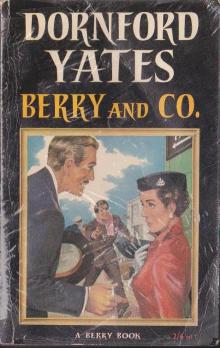 Berry and Co.
Berry and Co.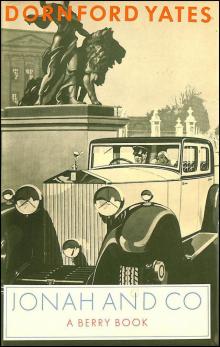 Jonah and Co.
Jonah and Co.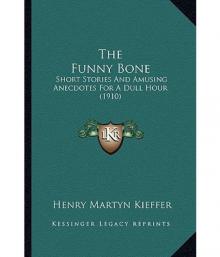 The Funny Bone: Short Stories and Amusing Anecdotes for a Dull Hour
The Funny Bone: Short Stories and Amusing Anecdotes for a Dull Hour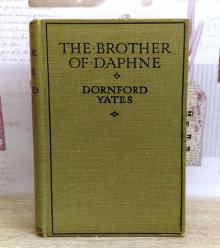 The Brother of Daphne
The Brother of Daphne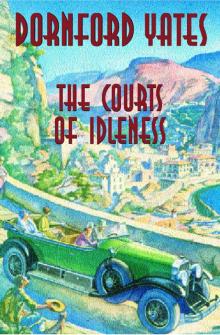 Courts of Idleness
Courts of Idleness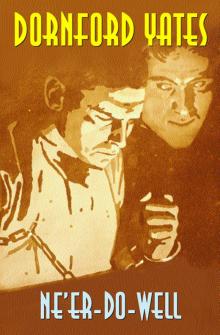 Ne'er Do Well
Ne'er Do Well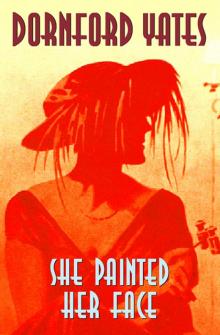 She Painted Her Face
She Painted Her Face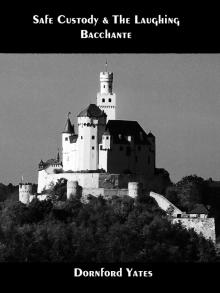 Safe Custody and Laughing Bacchante
Safe Custody and Laughing Bacchante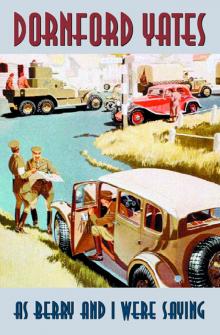 As Berry and I Were Saying
As Berry and I Were Saying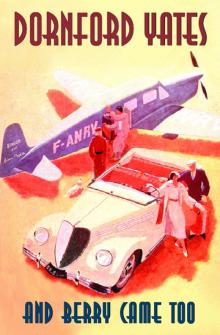 And Berry Came Too
And Berry Came Too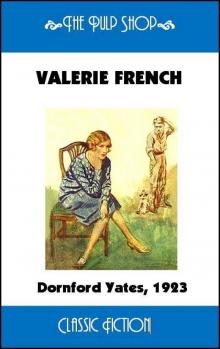 Valerie French (1923)
Valerie French (1923)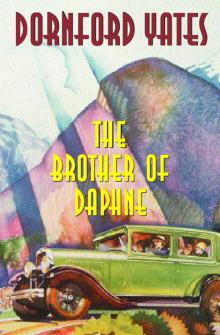 Brother of Daphne
Brother of Daphne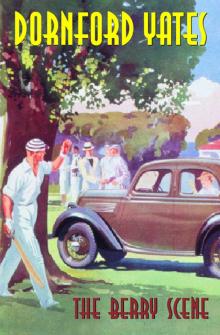 Berry Scene
Berry Scene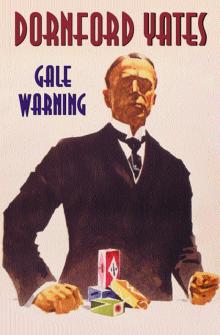 Gale Warning
Gale Warning B-Berry and I Look Back
B-Berry and I Look Back Storm Music (1934)
Storm Music (1934)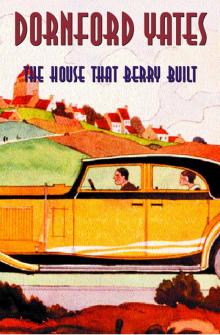 House That Berry Built
House That Berry Built